- Home
- Christie Golden
Assassin's Creed: The Official Movie Novelization Page 2
Assassin's Creed: The Official Movie Novelization Read online
Page 2
And they were staring at him.
Their faces were carefully neutral, but Cal’s stomach clenched.
Something was wrong.
He increased his pace, dropping the bike outside his door, and cast one more glance behind him at his silent, solemn neighbors.
Cal’s heart sped up slightly, though he didn’t understand why. He reached for the porch doorknob, and his hand froze.
The door was standing wide open.
His parents always closed it.
Cal swallowed, then stepped forward into the small enclosed porch, pausing, listening, moving slowly, like a stranger, in this so-familiar place. The door to the main part of the house was open, too. One small hand extended, parting the long strands of amber-colored beads that provided a token barrier between most of the rooms in the house.
There was no conversation or laughter, no smell of supper on the stove, no rattle or clink of dishes. The only sound of normalcy was Patsy Cline’s voice, tinny and faint, coming from the old beige radio, and the drone of the television in the background—some kind of news show.
“Today, we have Dr. Alan Rikkin, CEO of Abstergo Industries,” the host was saying. “Alan, it seems the world is on the precipice.”
“It does, doesn’t it?” The speaker had an upper-crust English accent. Cal caught a brief glimpse of a man in his late thirties, well-dressed, elegant, with dark eyes and sharp features.
“It seems mankind is intent upon destroying itself with this continuous and widespread violence. I believe unless we address the root causes of our aggressive nature, civilization as we know it will be lost. But we at Abstergo Industries are working towards isolating the key component—”
He droned on. Cal wasn’t paying attention as he continued to move forward. It was dark inside, but that wasn’t unusual; summers were hot here, and darkness kept things cool. But it wasn’t a friendly darkness, and Cal realized his hands were clammy.
As he stepped into the family room, he could see his mother seated in the kitchen, a silhouette against the windows. Relieved, and unsure why, Cal started to call out to her. But the words died in his throat. He realized now that she sat at a strange angle, leaning against the back of the char, her arms hanging down to either side.
And she was still. So, so still.
Cal froze, staring at her, his brain trying to work out what was wrong. Motion caught his eye—a slow drip of something on the floor, falling from her hand.
Drops falling into a spreading red puddle. This, the cruel sunlight caught.
Cal’s eyes were transfixed by the movement. Then they slowly traveled upward to follow the path of red.
The crimson droplets fell languidly from a silver pendant Cal remembered seeing every day around his mother’s long, slender throat. An eight-sided star with a diamond shape in the center. Etched on it in black was a symbol that looked almost like the letter A, if that letter’s lines had been made from stylized, slightly curved blades.
The chain was tangled around her hand now, and its silver links were bathed in scarlet.
Every instinct in him screamed to him to tear his gaze away, to flee and never look back. Instead, Cal stood, rooted to the spot.
Her hand was covered in blood. The left sleeve of her white peasant blouse was saturated with it.
And her throat….
“Mom?” he murmured, even though the hole in her throat meant she was dead.
“Laa shay’a waqi’un moutlaq bale kouloun moumkine.”
The whisper seized Cal’s attention, and he realized with a shock that he and his mother were not alone in the room.
Her killer was here, too.
He stood beside the television, a large man topping six feet, his back to Cal, staring out the window. A hood was over his head.
But once again, Cal’s eye was drawn to movement, to the same ghastly red fluid, dripping, dripping to the cheap linoleum floor, his mother’s blood flowing from the tip of a blade that extended beneath her murderer’s wrist.
“Dad,” he whispered, his world shattering as his body threatened to vomit, to collapse, to curl into a fetal position and never move again. It couldn’t be true.
Slowly the hooded figure turned, and Cal’s heart spasmed with grief and terror as he realized he had been right. The figure was his father.
Joseph Lynch’s eyes were haunted, as if he, too, was grieving, but how could that be? Why? He was the one who had—
“Your blood is not your own, Cal,” his father said, his voice, with its trace of Irish brogue that years in the United States had never been able to completely erode, heavy and aching. “They found us.”
Cal stared, uncomprehending any of it, all of it. And then, his father faced him fully, and began to walk toward him. The footfalls echoed loudly in this house of horror, a sound that ought to be normal and wasn’t drowning out the chatter on the television and Patsy Cline singing that she was crazy.
Crazy. I’m crazy. That’s what’s happening.
And yet, somewhat to his surprise, of their own volition, Cal’s feet were doing something not crazy at all. They seemed to move of their own volition, backing away from his father, his dad, who had just stuck a knife in his wife’s neck.
On the hooded man came, slowly, inexorably, as inescapable as death itself. Cal’s retreating feet suddenly stopped.
He didn’t want to live in a world where his father had killed his mother. He wanted to be with her.
Joseph Lynch stopped, too, his arms hanging limply, almost helplessly, at his sides, blood still dripping from the blade he had plunged into his wife’s delicate throat.
“They want what’s inside you, Cal. Live in the shadows,” his father said, as if his heart were breaking at the words.
Cal stared at him, his own heart slamming against his chest. He couldn’t move, couldn’t think—
The screeching sound of tires and the shadow of cars outside broke the deadly spell. The killer looked up, over his son’s head, at the cars now fishtailing to a stop outside his door.
“Go!” he screamed at his son. “Go! Now!”
Galvanized into action, Cal bolted for the stairs. His once-frozen limbs now propelled him up them two at a time, and he exploded out of the window onto the rooftops, the secret path of freedom his parents had never known about now turning into an acrobat’s escape route.
He ran as he had never run in his life, jumping without hesitation to one level above or below the long, low rooftops, rolling as he struck, leaping to his feet and running again. Out of the corner of his eye, Cal saw what seemed like dozens of black SUVs pouring like a flood down the dusty streets.
At one point, Cal ducked out of sight for a moment to catch his breath and risked a glance down.
In the passenger side of one car, he caught a glimpse of a pale, angular-featured man with dark hair, dark clothes, and dark sunglasses. It almost looked like the man he had just seen on the TV, but of course it couldn’t be.
Could it? For no reason he could fathom, a chill went through the boy.
The second the SUV turned, Cal ran again, jumping off the roof into a pile of debris, and pelting down the road that led away from the cluster of tenement buildings, away from his dead mother and murderous father, away from everything it meant to be Callum Lynch.
CHAPTER 2
THIRTY YEARS LATER
HUNTSVILLE DEPARTMENT
OF CRIMINAL JUSTICE
TEXAS, USA
Frank Kimmler, forty-seven, had been a guard at the Huntsville Department of Criminal Justice for seventeen years. In that time, he had seen some of the worst things a person could do to another person. Yet somehow, he was always surprised by the darkness that dogged his days, and after a bad one he always came home promising his wife he’d quit, get something a little calmer, safer. Something he could tell his girls about when he came home at night. Yet the next day, Kimmler was always back at work.
On this evening of October 21, as surveillance screens played out besid
e and behind him, a bologna and cheese sandwich and a Coke sat untouched as he sat watching a different screen entirely and talking on the phone to his wife, Janice.
“Breaking news of what appears to be three assassinations in Houston, Texas today,” the television reporter said somberly into the camera. “The head of the IMF Cassiane Lacroix, Texan oil billionaire Luther Wiley, and Chinese media mogul Bolin Chang, were all killed at the Four Seasons Hotel in broad daylight.”
“Yes, honey, I’m watching it on the news right now,” Kimmler was saying. “Three in one go. In broad daylight. I know, I know, it’s awful. Where are you?”
“I just pulled into the driveway,” Janice said. Her voice was shaking. “They blocked off some of the roads. Police cars everywhere. It was so backed up it took me three hours to get home! Frank… I wish you weren’t working there.”
He wished it, too, but he couldn’t say that. Instead, he said, “Oh, honey, I’m safer than anybody right where I am. It’s all my girls I worry about. Are they home with you?”
His eyes wandered back to the images of the three victims plastered on the TV screen as Janice told him that Suzanne was home upstairs doing her homework, but Patricia had called saying she’d be late. That got his attention.
“What do you mean she’s not home yet? It’s a school night!”
“She called, says she’s with her friends at the mall and Debbie’s mother is picking them all up as soon as she can get there. She’s fine.”
There was a long pause, then Janice said, “Will… will you be able to come home? I’m going to make pot pie. I think we could all use some comfort food.”
He glanced at his bologna sandwich and sighed longingly. “I’ll have to heat some up when I got home, babe. I’m stuck here. He goes under at six, so I’ll be home at nine.”
He waved at the familiar face approaching his desk. “I gotta go. Father Raymond is here.”
Frank hung up and turned to the priest, giving him a friendly smile. Father Raymond had been coming here for the last four years, and Frank had gotten fond of the skinny, soft-spoken younger man. He was fairly new to the cloth; he told Frank once that he’d been an English professor at some east coast university before finding his true calling. Frank could easily imagine him in the halls of academia, talking about Shakespeare or Dickens or somebody.
“Always on time, Father. How is that? The city’s on lockdown after what happened today. My wife took three hours to get home.”
“I’m glad she’s safe,” Father Raymond replied, looking relieved. “How are the girls?”
“One’s home, the other’s stuck at the mall with some friends. I try to keep tabs on them, but….”
Frank sighed and scratched the back of his head. A few years ago, his hair had started falling out. Last time Father Raymond had come, he’d teased Frank that he could have become a tonsured monk.
“I’m kind of scared for them, y’know. The way things are in the world today… it’s not a happy place.”
Father Raymond nodded sympathetically. “And… how is our man?”
“Quiet. All he does is draw. All day. It’s against regulations, but what are you gonna do? It’s the guy’s birthday. Turns out his father killed his mother. It’s gotta mess you up.”
Frank looked up at the priest with doleful brown eyes. “I don’t know, Father. He kills a pimp, we kill him. Doesn’t make sense….”
“The ways of God—” Father Raymond began.
“—are not our ways.” Frank sighed.
The priest produced a handkerchief and wiped at his palm, smiling self-deprecatingly at Frank. “You never get used to this part of the job,” he said.
“Nope,” Frank replied. “And I don’t think that’s a bad thing.”
Father Raymond tucked the handkerchief away and nodded as another guard stepped up, ready to escort him back.
“Give my regards to Janice and the girls. Tell them I’ll keep them in my prayers.”
***
The inmate in cell 304 was not a particularly gifted artist, Father Raymond thought. But he was prolific, and he threw himself into his task with an almost furious singlemindedness of purpose.
Pieces of rectangular, cream-colored manila paper with drawings that ranged from the haunting to the grotesque adorned the wall as high as a man could reach. On the other three walls, thick felt-tip markers in shades of black, green, and blue had left their marks in the form of gibberish graffiti, or in strange symbols that perhaps even the creator of the nightmarish gallery could not interpret.
Father Raymond observed the prisoner in his late thirties as he sat on the floor, scribbling with a piece of charcoal. The inmate paused, rubbing a spot with his thumb to smooth the harsh black lines into a softer, misty form. He only looked up from his work as the door was opened to admit the priest.He got to his feet, then sat quietly on his cot, looking up at Father Raymond with an expression of mild boredom.
Keys rattled as the door was locked behind the man of God, who regarded the unsettling images intently, with no hint of distaste, only compassion. He had certainly seen cruder things before in the cells of men about to die.
Father Raymond perused them with seriousness and thought: charcoal sketches of men with bizarre headpieces, lumpy, barely-formed shapes that were only vaguely human embracing or killing one another, skulls embedded in flowers, a cavernous mouth open in a scream, a hand brandishing a cross, a figure engulfed in flame, a nearly-skeletal horse neighing in terror.
One in particular gave the priest pause: it was the crude, almost cartoonish shape of an old-fashioned executioner, with a black hood pulled over his head.
Then he turned to the prisoner.
He had a name, of course; all men had names. Father Raymond made sure he used them. At the hours of their deaths, of all times, it was important that they know that others understood that.
“You’re Callum Lynch,” the priest said, his voice calm and kind. “I’m Father Raymond.”
Callum Lynch’s hands were covered in charcoal dust, his reddish-blond hair cropped short, and there was something blazing in the depth of his blue eyes that told the priest that Lynch’s veneer of calm control was exactly that—a veneer, one perhaps paper-thin.
“Are you here to save my soul?” the prisoner asked, his voice husky from disuse.
“Something like that.”
Father Raymond hesitated, wondering if should mention what Frank told him, then decided to go ahead. “I, uh… understand it’s your birthday.”
Lynch laughed slightly at the words. “Yeah,” he said. “The party’s just getting started.”
Father Raymond was at a loss. He was supposed to be the one offering comfort at this time, as a man looked death in the face. Most of those he went to were emotional—frightened, angry; regretful, some of them. But now the priest stood, looking at a man who seemed completely calm, and Father Raymond wasn’t sure what to do next.
“Sit down,” Lynch said, adding, “you’re making me nervous.” He did not look in the least bit nervous, but Father Raymond took a seat on a small bench facing the prisoner and opened his Bible. He had a few favorite passages that had, over the years, seemed to offer comfort to the condemned men.
He turned to one of them now and began to read. “‘And he said, O Lord, wash away my sin, and I will be clean. Let me hear the sounds of love and gladness, and though You have crushed me and broken me, I will be whole once again.’”
Father Raymond glanced up at the prisoner, who was clearly disinterested. The priest had discovered that how a man reacted to death was as unique as the individual. Some wept, seeing a promise that God would forgive them, and grant them admission into heaven if they were truly repentant. Some were angry, justifiably so, and had nothing but crude, vicious, violent words. Some men just sat and sobbed quietly, and never said a word. All deserved to be respected.
As did Callum Lynch and his polite boredom. “You’re not much for the Bible, are you?” Father Raymond asked, knowing
it to be a rhetorical question.
Cal shook his head absently.
“Is there anything I could say that might bring you comfort?”
Father Raymond was not expecting an answer, but to his surprise, Cal said, “There’s a poem my mother used to read to me. ‘After Apple-Picking.’”
The priest was pleased that his prior career now enabled him to accommodate a man’s last request. God was good. Nodding, he said, “I know it. Robert Frost,” and began to speak.
Not nearly as familiar to most as some of Frost’s other poems, such as “Stopping by Woods on a Snowy Evening” or “Fire and Ice,” this poem was one that Father Raymond himself was fond of. It was, curiously and sadly, appropriate for Cal today.
The priest spoke the lines in a soft, gentle voice. The ladder of the poem, seemingly pointing to heaven, and an empty apple barrel the narrator did not have a chance to fill made Father Raymond think of a life cut short.
Like the victim’s had been; like Callum Lynch’s was about to be.
Keys rattled as the priest paused to take a breath. The door opened.
It was time.
If this had been an ordinary visit, the priest would have asked for a chance to finish reciting the poem. But it wasn’t. Death was on a timetable here, and men, even men of God, were forced to yield the stage.
Cal got to his feet. Father Raymond rose, too, and stood beside him. At least he would walk with Cal to the chamber, and would stand there until his soul left his body.
Where it went after that, Father Raymond could not pretend to know.
***
Chains were placed on his ankles and feet, clinking as Cal walked the seemingly interminable, but somehow too-brief hallway to the room where his life would end.
The priest hadn’t finished the poem, but that was all right. Cal knew it by heart and finished it himself, in silence, thinking of how the poem evoked the smell of the harvested fruit, and the echoes of approaching winter.
His mind was not on the gurney to which they strapped him, but elsewhere; in a safe and peaceful place, with light the color of honey streaming in from the window. In that timeless place, he was seven years old, and she was still alive, her voice sweet and soft, her body warm as he lay trustingly against her, the faint scent of her lavender soap teasing his nostrils. Drowsiness was in that memory, as in the poem.

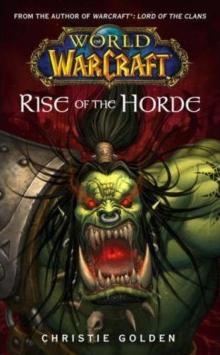 Rise of the Horde
Rise of the Horde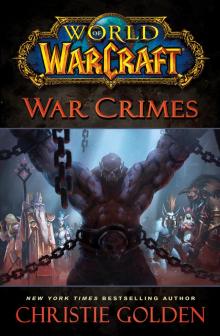 World of Warcraft: War Crimes
World of Warcraft: War Crimes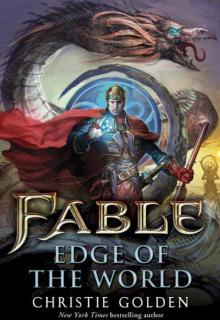 Fable: Edge of the World
Fable: Edge of the World Homecoming
Homecoming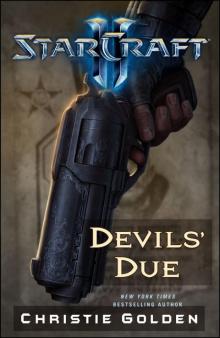 StarCraft II: Devil's Due
StarCraft II: Devil's Due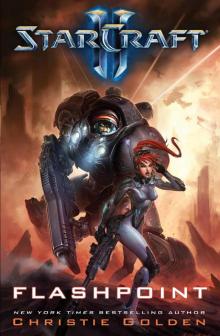 Starcraft II: Flashpoint
Starcraft II: Flashpoint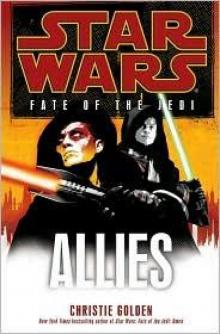 Allies
Allies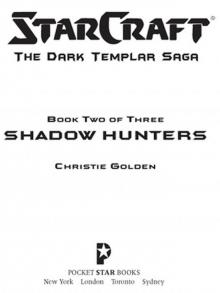 Shadow Hunters
Shadow Hunters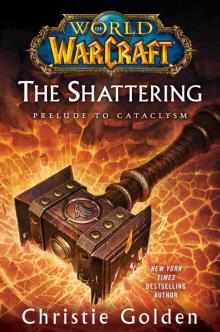 The Shattering: Prelude to Cataclysm wowct-1
The Shattering: Prelude to Cataclysm wowct-1 STAR TREK: VOY - Homecoming, Book Two - The Farther Shore
STAR TREK: VOY - Homecoming, Book Two - The Farther Shore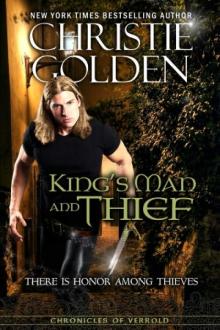 King's Man and Thief
King's Man and Thief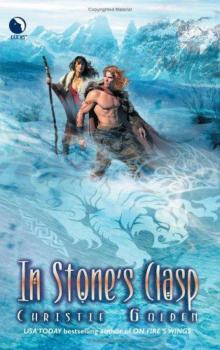 In Stone's Clasp
In Stone's Clasp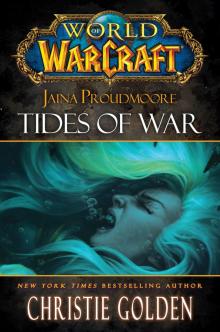 Jaina Proudmoore: Tides of War
Jaina Proudmoore: Tides of War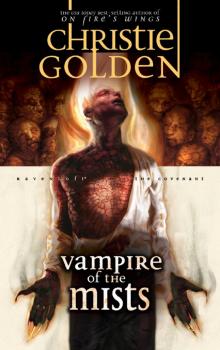 Vampire of the Mists
Vampire of the Mists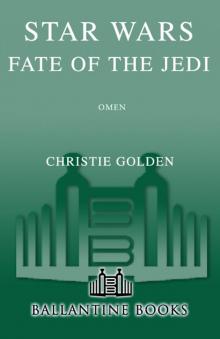 Star Wars: Fate of the Jedi II: Omen
Star Wars: Fate of the Jedi II: Omen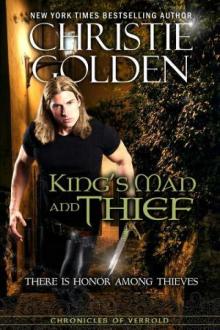 King's man and thief cov-2
King's man and thief cov-2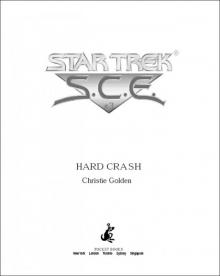 Star Trek
Star Trek StarCraft: Dark Templar: Twilight
StarCraft: Dark Templar: Twilight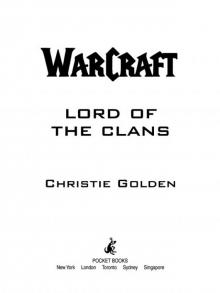 Lord Of The Clans
Lord Of The Clans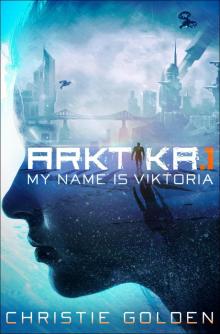 ARKTIKA.1 (Short Story)
ARKTIKA.1 (Short Story)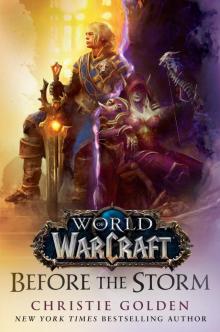 Before the Storm
Before the Storm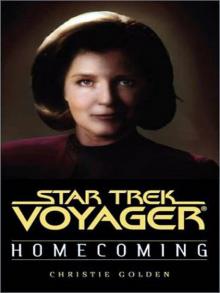 STAR TREK: VOY - Homecoming, Book One
STAR TREK: VOY - Homecoming, Book One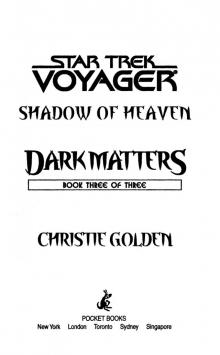 Shadow of Heaven
Shadow of Heaven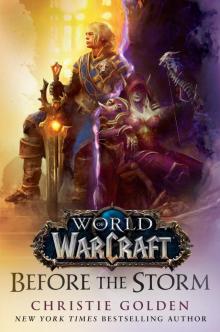 Before the Storm (World of Warcraft)
Before the Storm (World of Warcraft)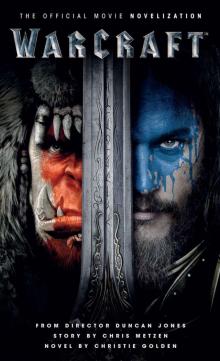 Warcraft Official Movie Novelization
Warcraft Official Movie Novelization Flashpoint
Flashpoint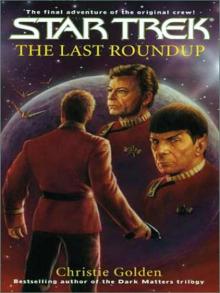 STAR TREK: The Original Series - The Last Roundup
STAR TREK: The Original Series - The Last Roundup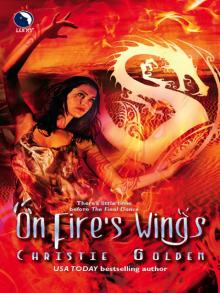 On Fire’s Wings
On Fire’s Wings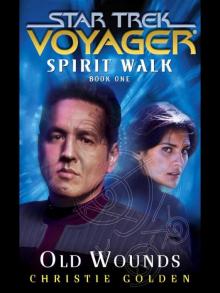 Spirit Walk, Book One
Spirit Walk, Book One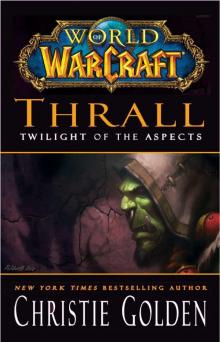 Thrall Twilight of the Aspects
Thrall Twilight of the Aspects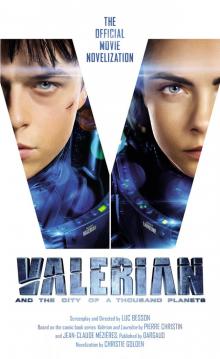 Valerian and the City of a Thousand Planets
Valerian and the City of a Thousand Planets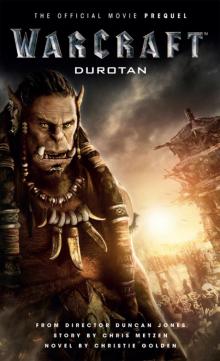 Warcraft
Warcraft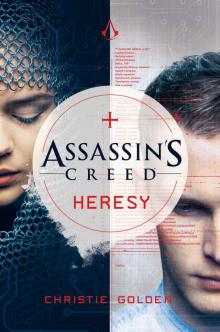 Assassin's Creed: Heresy
Assassin's Creed: Heresy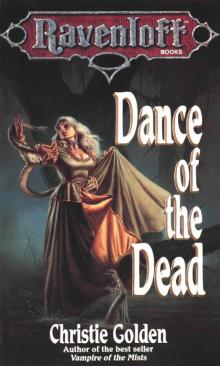 Dance of the Dead
Dance of the Dead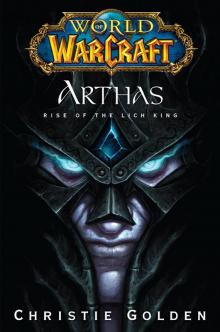 Arthas: Rise of the Lich King wow-6
Arthas: Rise of the Lich King wow-6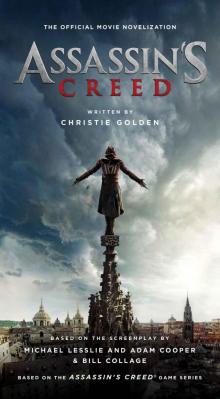 Assassin's Creed: The Official Movie Novelization
Assassin's Creed: The Official Movie Novelization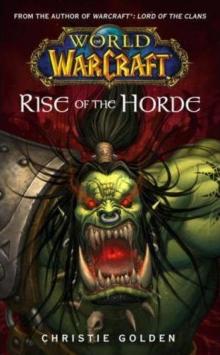 Rise of the Horde wow-2
Rise of the Horde wow-2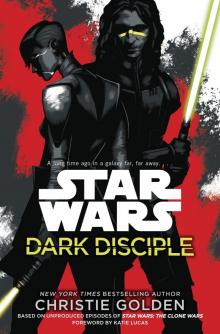 Dark Disciple
Dark Disciple Ghost Dance
Ghost Dance The Shattering
The Shattering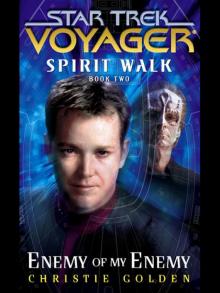 Spirit Walk, Book Two
Spirit Walk, Book Two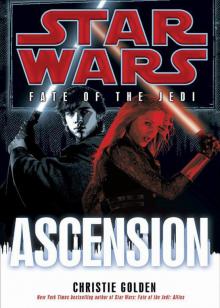 Star Wars: Fate of the Jedi: Ascension
Star Wars: Fate of the Jedi: Ascension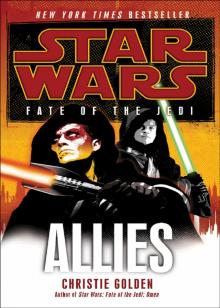 Star Wars: Fate of the Jedi V: Allies
Star Wars: Fate of the Jedi V: Allies The Enemy Within
The Enemy Within Kindred Spirits
Kindred Spirits The Farther Shore
The Farther Shore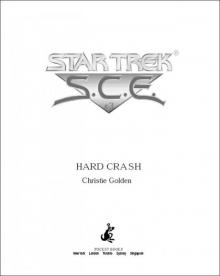 Star Trek: Hard Crash (Star Trek: Starfleet Corps of Engineers Book 3)
Star Trek: Hard Crash (Star Trek: Starfleet Corps of Engineers Book 3) Twilight
Twilight